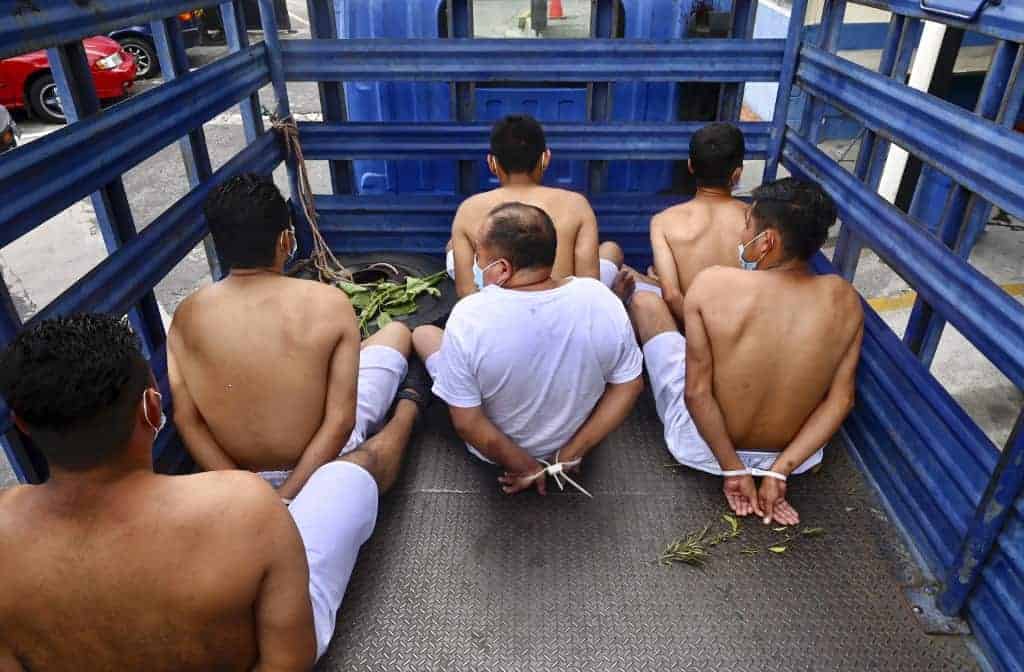El Salvador last year recorded its lowest murder rate in three decades, the government said Wednesday, hailing President Nayib Bukele’s controversial war on gangs.
A total of 154 murders registered in the country of 6.6 million people amounted to a rate of 2.4 per 100,000 inhabitants — down from 495 murders in 2022, officials said. The rate was almost a third lower than the world average as tallied by UN agencies.
When Bukele took power in 2019 elections, the poverty-stricken Central American country had one of the world’s highest murder rates at 38 per 100,000 inhabitants, with drug gangs controlling 80 percent of the country, according to the government. Under a state of emergency passed by Congress in March 2022 and consistently renewed since then, authorities have imprisoned more than 75,000 alleged gang members, of whom about 7,000 were later released.
Bukele, who is on a formal leave of absence ahead of elections in February, boasted on X, formerly Twitter, on Wednesday that El Salvador was now “officially the safest country in all of Latin America.”
Justice Minister Gustavo Villatoro reiterated this at a press conference, saying El Salvador’s murder rate was now the second lowest in the Americas after Canada. Villatoro hailed what he said was a “courageous decision to confront the criminal structures.” Bukele’s war against violent gangs has won him adoration from a crime-fatigued population.
Small business owners, street vendors and residents alike celebrate their new-found freedom from gangs that demanded protection money and fought turf battles that claimed many civilian lives.
But the campaign has sparked alarm from rights groups, the United States and United Nations over arbitrary arrests, inhumane prison conditions and growing authoritarianism. Bukele has announced he would seek another term in office after the Supreme Court allowed him to run for reelection, sparking intense debate over the ruling’s constitutionality.
The Salvadoran constitution imposes single-term limits on candidates for presidential elections, barring anyone who “has served as President of the Republic for more than six months, consecutive or not” in the six months preceding the new presidential period.
In December, a Congress dominated by Bukele allies granted him a six-month leave of absence that runs until the end of May — when the presidential term officially ends.
Elections are slated for February 4.






